
Know-how Transfer of Automatic Naphthalene Sulfonate Formaldehyde Production Line
(SNF/NSF/PNS)
I. Product Description
Naphthalene Sulfonate Formaldehyde (NSF) is a naphthalene-based superplasticizer, also named Naphthalene Sulfonate Formaldehyde Condensate (SNF) and Poly Naphthalene Sulfonate (PNS) etc. It is a high range water reducer, commonly referred to as superplasticizer. It is a chloride free product that’s supplied as a brown powder to be instantly dissolved in water. It’s used to effect substantial water reduction to concrete without influencing normal setting time.
Standards Compliance
Naphthalene Sulfonate Formaldehyde (SNF/NSF /PNS) complies with the requirements of the following standards: ASTM C 494, Type F; ASTM C 1017 .
Typical Properties
| Items | Specification | |
| UNF-5 | FDN | |
| Appearance | Light Brown Powder | Dark brown Powder |
| Specific Gravity | 1.24 | 1.24 |
| Sodium Sulfate Content, % | 18.0 max | 5.0 max. |
| pH value | 8–10 | 7 -9 |
| Solid Content, % | 92 min | 92 min |
| Moisture, % | 8.0max | 8.0max |
| Fineness (0.315mm remains), % < | 15 | 15 |
Application
1. It’s the most widely used concrete admixture at present and takes for 80% of total consumption. It’s extensively used in concrete mixing plants.
2. It’s used for making concrete below the strength grade of C60. When compounded with other admixtures, it’s applied in pumping concrete, curing concrete and others that have special requirement.
II Coverage of know-how transfer
Preface
Our cost estimation is based on the assumption of producing 100 to 120 tons per day of liquid product at the concentration of 40%. And the drying capacity for powder product can be 2 tons per hour.
Liquid product line design
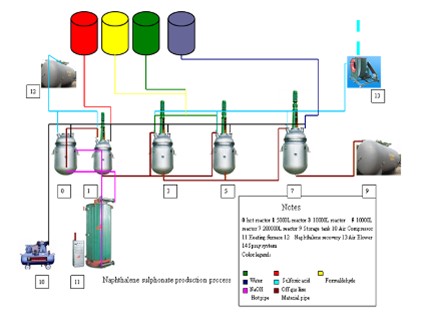
Drying equipment design: Dryer of 2 tons per hour
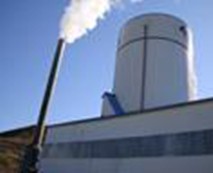
Storage Tank Farm Design
Following aspects need to be considered:
1.Reasonable capacity: in order to ensure 100-120 tons of continuing production capacity for liquid product per day and prevent raw material shortage, the raw material storage tank capacity is designed as 90cubic meters for each one. Four raw material storage tanks and two finished products storage tanks are required.
2.Since the raw materials are hazardous chemicals, the storage tank area should be located separately and each storage tank should keep a proper distance from another so as to avoid leakage. Furthermore, the design of the storage tank should have emergency measures in case of the accident occurred.
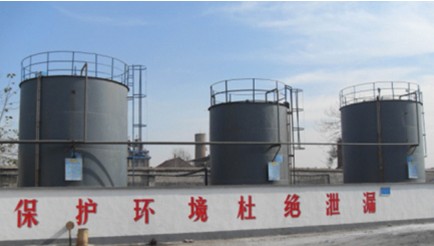
Environmental Protection Equipment and Design
Environmental problem is the most important part in the whole production process. It would affect both company’s regular production and long-term development. From the perspective of social and company responsibility, we need to have thorough consideration on the designing of workshop and production process. In order to reduce waste discharge and conform to the government requirement, we lay out the following points:
1 The sulfonation and condensation courses are in closed-type in the whole liquid production process, pressure is necessary to make sure the closed-type production. The whole process ensures non-discharge, saving raw materials and stable product performance.
2 Cooling and water spraying absorption measures can be applied to reduce waste gas discharge during the production process; then recycle the waste water.
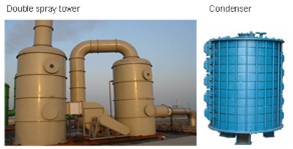
Following are anticorrosion pipelines and pipe fits for the material transfer between reaction tank:

Electrical Control Design
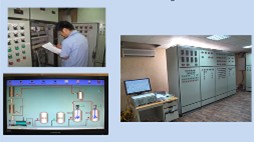
PLC Electric Control
Real-time Monitoring
Note: Customer may tell us the requirement of this part for us to design.
Laboratory design
Main functions of laboratory:
1.To ensure the incoming material qualified, incoming material inspection should be applied on the material used in production.
2.Test the product quality while in a key process, so as to ensure the product quality before entering into next process
3.To ensure the ex-plant products achieve the factory standard, comprehensive property check should be done on finished products.
According to different aims of the experiment, it can be divided into three parts: Chemical experiment, physical experiment and product development.

Basic equipments for manufacturing (liquid) (60tons per day)
- Reactor of 5000 liter 1set Naphthalene Liquidification;
Reactor of 5000 liter 1set Sulfonation;
Reactor of 10000 liter 2sets Condensation;
Reactor of 20000 liter 1set Neutralization. - Raw material storage tanks, 3 sets, 30 tons capacity for each set
- Pipeline: Phenolic resin pipeline and steel pipeline
- Heating system: streaming boiler 0.5t, oil-fuel 300000kcal/h
- Environmental protection equipments: Corrosion-resistant draught fan, spray pump, Naphthalene recollection room, etc..
- Additional equipment: including power terminal, electrical cabinet, pipeline pump, air compressor, operation platform, etc..
- Automatic production monitored by a computer system and data collection devices.
Project Investment
- Equipments: 163,000 USD to 200,000 USD
- Circulating cash: 75,000 USD to 150,000 USD
- The other costs: 15,000 USD to 23,000 USD
- Total equipment, facilities, and civil construction cost: 290,000 USD to 447,000 USD
- Chemical Synthetic know-how 60,000 USD
- Drying Know-how 45,000 USD
- Raw material for production
- Crude Naphthalene (96%)
- Sulphuric Acid (concentration 98%)
- Formaldehyde (concentration 36%)
- NaOH (40-60%)
Utility consumption
- Averagely, the utility consumption per ton is as following:
- Diesel (heating): 3-5kg
- Electricity: 20-25KWH
- Cooling water (recycled): 20CM/hour
- Clear height of plant workshop: 6-8m
- Plant, warehouse and office occupancy: 500-1000m2
- Electricity Power: Electricity: 380Voltage, 60HZ and 315KW three phase transformer.





